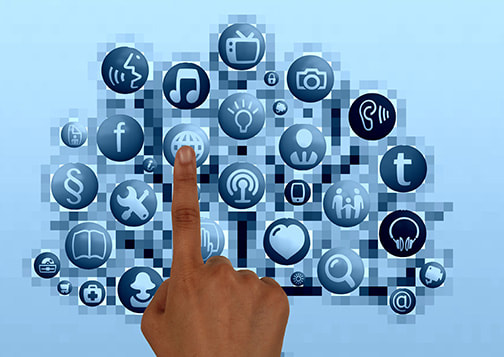The Benefits of Microlearning
Our Learning Nudges program is built on the principles of microlearning. Each Nudge is a non-intrusive mental push-up. These 'building blocks' of learning, where individuals spend three to five minutes each week over a period of six months exploring concepts of diversity and inclusion, allows an exploration of their own boundaries, blind spots, personal judgment and decision-making in uncertain situations.
There's consensus in the Learning & Development community that this approach is revolutionizing the way people absorb and retain learning in comparison to more traditional training interventions.
Nudging is described as a system for positive reinforcement and indirect influence. The theory is built on the concept that small changes in understanding can prompt bigger, lifelong changes in behavior. It's pointless to try and force learners to do something. With Learning Nudges, they become motivated to make changes without rational arguments, incentives or blame.
Learning Nudges create more inclusive cultures.
There's consensus in the Learning & Development community that this approach is revolutionizing the way people absorb and retain learning in comparison to more traditional training interventions.
Nudging is described as a system for positive reinforcement and indirect influence. The theory is built on the concept that small changes in understanding can prompt bigger, lifelong changes in behavior. It's pointless to try and force learners to do something. With Learning Nudges, they become motivated to make changes without rational arguments, incentives or blame.
Learning Nudges create more inclusive cultures.
Nudge Theory and Behavioral Economics
Over the past two decades much research has been done in the branch of psychology known as behavioral economics. The goal is to gain a deeper understanding of why we make unconscious decisions. Richard A. Thaler, an American author and professor of behavioral science and economics won the Nobel Prize for his work connecting psychological assumptions and economic decision-making. In essence he found that people often don't act according to the traditional 'economics-based' model of decision-making, due to limited rationality, social preferences and lack of self control.
As an economist Thaler advocates for "social policies that lead people to make good and better decisions through "nudges," without depriving them of the freedom to choose." In a book he co-authored with Cass Sunstein, the two reflected on how organizations can help people make better choices, writing: "People often make poor choices and look back at them with bafflement!" "...We do this because, as human beings, we all are susceptible to a wide array of routine biases..."
Today Learning & Development professionals and instructional designers are applying the same principles to learning. In his groundbreaking book Thinking, Fast and Slow, Daniel Kahneman explores the two systems that drive how people think and make choices, both in their personal and professional lives.
As an economist Thaler advocates for "social policies that lead people to make good and better decisions through "nudges," without depriving them of the freedom to choose." In a book he co-authored with Cass Sunstein, the two reflected on how organizations can help people make better choices, writing: "People often make poor choices and look back at them with bafflement!" "...We do this because, as human beings, we all are susceptible to a wide array of routine biases..."
Today Learning & Development professionals and instructional designers are applying the same principles to learning. In his groundbreaking book Thinking, Fast and Slow, Daniel Kahneman explores the two systems that drive how people think and make choices, both in their personal and professional lives.

